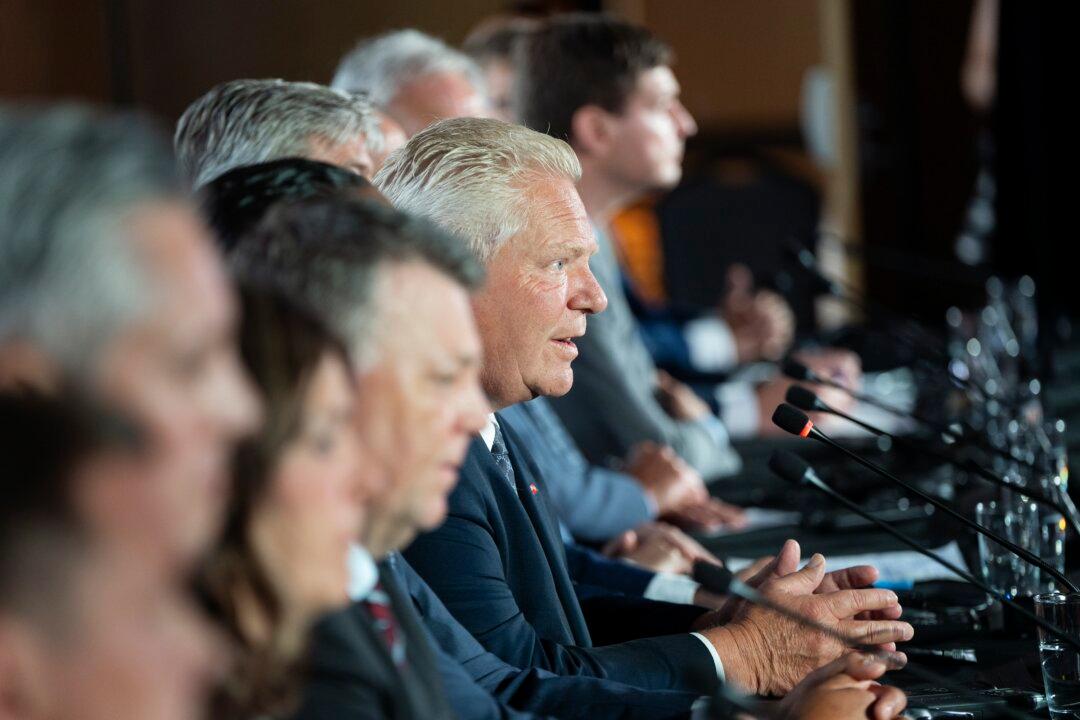While Canada’s premiers disagreed about many things during their three-day meeting in Halifax, they were all on the same page when it came to one subject: the federal government needs to stay out of their jurisdiction.
“Every federal budget, we see more and more new programs in provincial jurisdictions. Enough is enough,” Quebec Premier François Legault said on July 15.





